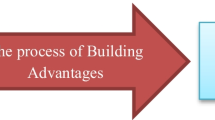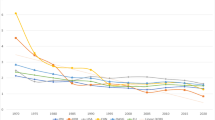Abstract
One of the issues to be faced by countries in central and eastern Europe and parts of Asia undergoing transition to a market economy is how to prepare students for the new environment. This article explores the experience from a three year Technical Assistance to the former Commonwealth of Independent States (TACIS) funded project aimed at reforming economics education at the School of Economic Studies (SES) within the National University of Mongolia. The focus of the project was initially on curriculum reform, but it soon became evident that to be effective this would need to be supported by managerial reform.
The article therefore commences by briefly outlining the context of the reform process in Mongolia and by describing the nature of curriculum reform within the SES, including issues relating to the learning environment, course content and structure, and learning and assessment methods. That leads to an analysis of consequential reform of institutional management including issues relating to the codification and common ownership of information, conditions of service of staff, financial flexibility and management information systems.
The article reflects on achievements and constraints of implementing reform at a sub-institutional (School) level and concludes with a summary of findings which might be of general value to those involved in the management of change as institutions begin to prepare their students to operate within a market economy.
Similar content being viewed by others
References
Becher, T. (1989). Academic Tribes and Territories. Milton Keynes: SRHE/Open University Press.
Bray, M., Davaa, S., Spaulding, S. and Weidman, J. (1994). 'Transition from socialism and the financing of higher education: the case of Mongolia', Higher Education Policy 7(4), 36-42.
Collins, P. and Nixson, F. (1991). Management Development and Economic Restructuring in the Mongolian People's Republic. New York: UNDP MDP.
Davies, J.L. (1987). The Entrepreneurial and Adaptive University. Paris: OECD.
Davies, J.L. and Morgan, A.W. (1982). 'The politics of institutional change', in Wagner, L. (ed.), Agenda for Institutional Change in Higher Education 8. Guildford: SRHE/NFERNelson, pp. 153-188.
Donaldson, L. (1987). 'Strategy and structural adjustment to regain fit and performance: in defence of contingency theory', Journal of Management Studies 24, 1-24.
Eisemon, T.O., Mihailescu, I., Vlasceanu, L., Zamfir, C., Sheehan, J. and Davis, C.H. (1995). 'Higher education reform in Romania', Higher Education 30(2), 135-152.
Hall, D., Nixson, F., Stubbs, P. and Walters, B. (1997). The Reform of Economics Higher Education in Mongolia: Educational and Institutional Change in a Transitional Economy, University of Manchester, School of Economic Studies, Discussion Paper, No 9722.
Handy, C. (1993). Understanding Organisations, 4th edition. Harmondsworth: Penguin Books.
Keller, G. (1982). Academic Strategy: The Management Revolution in American Higher Education. Baltimore: Johns Hopkins University.
Kochan, T.A. and Useem, M. (eds.) (1992). Transforming Organisations. New York: Oxford University Press.
Leavitt, H.J. (1965). 'Applied organisational change in industry: structural, technological and humanistic approaches', in March, J.G. (ed.), Handbook of Organisations. Chicago: Rand McNally.
McNay, I. (1995). 'From the collegial academy to corporate enterprise: the changing cultures of universities', in Schuller, T. (ed.), The Changing University? Buckingham: SRHE/Open University Press, 9, pp. 105-115.
Mauch, J.E. and Sabloff, P.L.W. (1995). Reform and Change in Higher Education. New York: Garland.
Millett (1962). The Academic Community. New York: McGraw Hill.
Mohrman, A.M. Jr. and Lawler, E.E. III. (1993). 'Human resource management: building a strategic partnership', in Galbraith, J.R., Lawler, E.E. III and Associates (eds.), Organising for the Future: The New Logic for Managing Complex Organisations. San Francisco: Jossey-Bass, pp. 229-255.
Nadler, D.A., Gerstein, M.S., Shaw, R.B. and Associates (1992). Organisational Architecture. San Francisco: Jossey-Bass.
Perrow, C. (1967). 'A framework for the comparative analysis of organisations', American Sociological Review 32, 194-208.
Robinson, B. (1995). 'Mongolia in transition: a role for distance education', Open Learning, November 1995.
Sadlak, J. (1994). 'The emergence of a diversified system: the state/private predicament in transforming higher education in Romania', European Journal of Education 29(1), 13-23.
Scott Morton, M.S. (1992). 'The effects of information technology on management and organisations', in Kochan, T.A. and Useem, M. (eds.), Transforming Organisations. New York: Oxford University Press, pp. 261-279.
Skilbeck, M. (1990). Curriculum Reform: An Overview of Trends. Paris: Organisation for Economic Co-operation and Development.
Spaulding, S. (1992). 'Higher education and market economy in Mongolia', Journal of Asian and African Affairs 4(1), 1-33.
Stenhouse, L. (1975). An Introduction to Curriculum Research and Development. London: Heinemann.
Struthers, J., Wylie, J. and Young, A. (1994). 'Academic support for enterprise in the former Soviet Union', Industry and Higher Education 18(3), 174-181.
TACIS (1995). Reform of Economics Education in Mongolia: Project Synopsis (MG94.01/02/.01/B003). Brussels: European Commission.
Thomas, H.G. (1996). 'Resource allocation in higher education: a cultural perspective', Research in Post-Compulsory Education 1(1), 35-51.
Thomas, H.G. (1998). 'Reform and change in financial management: the need for a holistic approach', Higher Education Management 10(2), 95-106.
UNDP United Nations Development Programme (1997). Human Development Report. Mongolia: UNDP, Ulaanbaatar.
Wu, Kin Bing (1994). Mongolia: Financing Education During Economic Transition. Washington D.C.: World Bank Discussion Paper No. 226.
Yusuf, S. and Burki, S.J. (1992). Developing Mongolia. Washington DC: China and Mongolia Department, The World Bank.
Author information
Authors and Affiliations
Rights and permissions
About this article
Cite this article
Hall, D., Thomas, H. Higher education reform in a transitional economy: a case study from the School of Economic Studies in Mongolia. Higher Education 38, 441–460 (1999). https://doi.org/10.1023/A:1003832124887
Issue Date:
DOI: https://doi.org/10.1023/A:1003832124887




